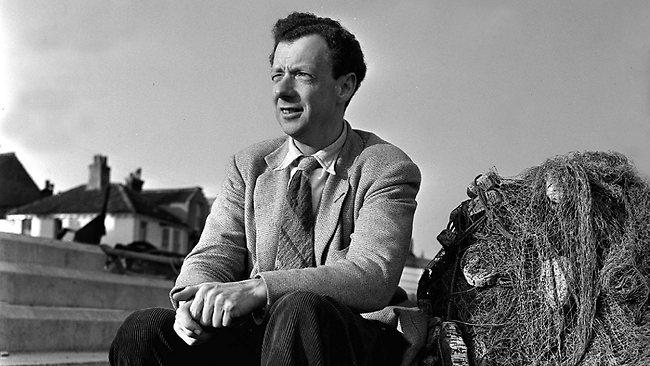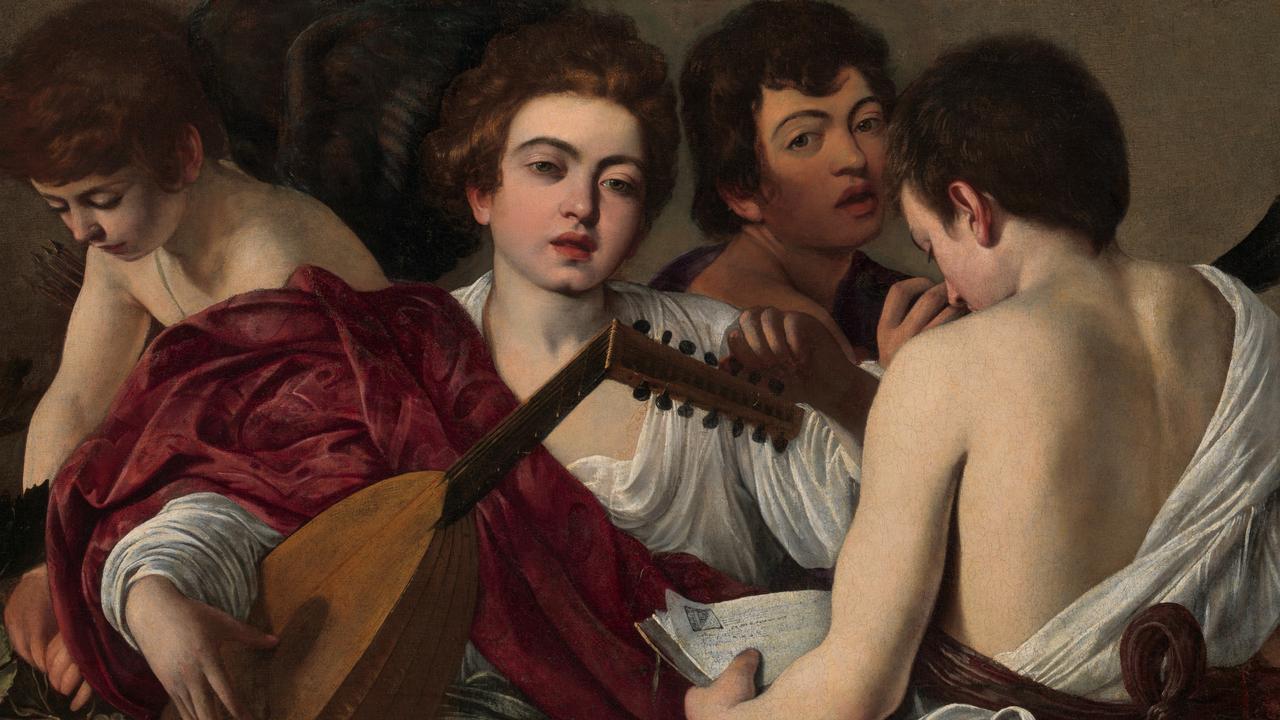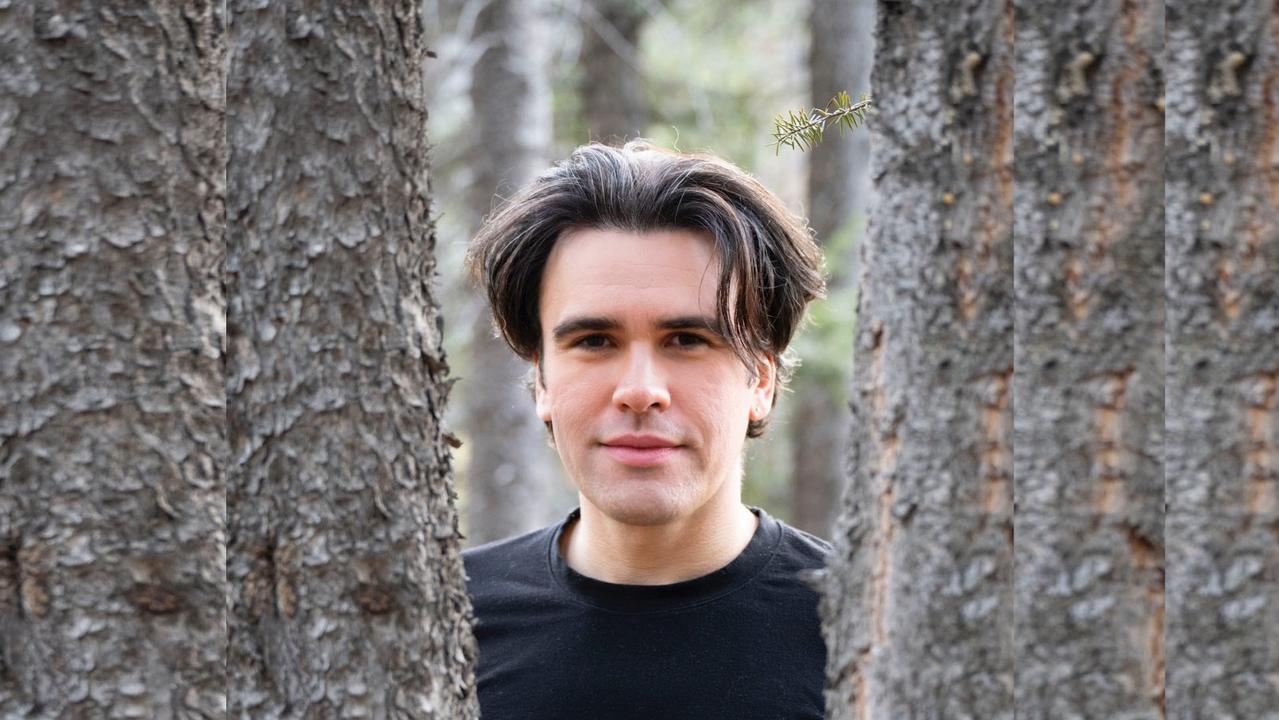Composer Benjamin Britten has the last laugh in his centenary year
HIS stock has never been higher, but Benjamin Britten is still often seen as difficult. This centenary year will change that.

THERE will be no evading Benjamin Britten in the coming months. Thirty-seven years after his death in 1976, a man widely labelled as "the greatest English composer since Purcell" has his centenary marked worldwide not only by a torrent of concerts and opera productions but also by the publication of two new biographies, Britten festivals in Moscow and Dusseldorf, significant premieres of his works in Brazil, Chile, the Palestinian territories, New Zealand and China, and performances across Australia.
Who was this man and why does his music continue to exert such an extraordinary hold? In his recent play The Habit of Art, Alan Bennett presents him as an effete and indecisive figure - someone a previous generation would have labelled "pansified" - but this could scarcely be more misleading.
Britten was homosexual, but in all external respects he comported himself like a respectable tweedy middle-class bachelor of a liberal persuasion. Aside from his stubborn but undoctrinaire pacifism, he was conventional in his habits, manners and dress. Competitive and athletic, he was head boy and victor ludorum at school. He drove fast cars fast, played a mean game of tennis and enjoyed freezing seawater dips and hearty roast lunches.
In his professional dealings, he could be ruthless - "Britten's corpses" are what they called those whom he cold shouldered. The excisions were unpleasant, but often necessary: like any successful businessman, he had no time for slackers or second-raters. The music came first and he could associate only with people who would serve it well.
Off duty, however, he could be warm, generous and good-humoured, content to lead a quiet daily life out of the metropolitan limelight in his beloved native Suffolk. His emotional focus was a loving if occasionally scratchy marriage to tenor Peter Pears, for whom he wrote much of his greatest music, but his life was also marked by a series of intimate relationships with pubescent boys.
This has caused much anxiety among his admirers and detractors but, as a sensitive study of the matter by John Bridcut revealed recently, these relationships were pseudo-paternal and involved no genital contact. It seems rather that in some respects Britten remained a prep-school boy himself and that his fondness for other prep-school boys was what modern jargon describes as "being in touch with your inner child".
A mysterious and convoluted personality, then, described by his peer Michael Tippett as "the most purely musical person I have ever met", and a strangely elusive composer too, whose work fits no stylistic pigeonhole. Neither romantic, classicist nor modernist, neither revolutionary nor reactionary, Britten ploughed his own furrow and left a uniquely rich and still influential legacy.
His musical language is sometimes uninhibitedly accessible (The Young Person's Guide to the Orchestra, Noye's Fludde) and sometimes bleakly austere (Death in Venice). Never altogether comfortable with big symphony orchestras or grand opera houses, he preferred the collegiality of the more intimate and flexible circumstances he developed in Aldeburgh or commissions that took him outside the establishment - early in his career he wrote film scores, late in his career he wrote operas for church and television. He was ready to make his music socially useful, and was as inspired by the challenge of making music for amateurs and children as he was by the talents of Mstislav Rostropovich and Janet Baker. He was also a magically wonderful pianist and on occasion a superb conductor - accomplishments glowingly evident on his classic stereo recordings for Decca.
During the past century, Britten's reputation has passed through several phases. Today it probably stands higher than ever.
But it has been a long journey. During his lifetime, Britten was always rattling one faction or another. In his youth in the 1930s, when British taste was rooted firmly in the Germanic tradition, he was regarded by the somnolent top brass as a peskily brilliant wunderkind and impish rebel. Victorians and Edwardians such as Wagner, Brahms, Sibelius and Elgar were of little interest to him; his work seemed to grow out of 20th-century Stravinsky and 17th-century Purcell, with an exhilarating bravado and energy of its own. Whose side was he on?
Another dimension accrued to that question when Britten left England in 1938 for the US in search of a freer musical culture. When war broke out and, like his homosexual friends and contemporaries WH Auden and Christopher Isherwood, he decided to remain in his American haven, his name was mud among the patriotic.
Overcome by homesickness, Britten did return in 1942, however, and was granted conscientious objector status. But the scoffers were silenced only a few weeks after V-E Day, when he premiered Peter Grimes, his first major operatic masterpiece and an overwhelmingly powerful moral statement about the relationship between society and the outsider that caught the national mood and elevated his standing to the point at which he seemed to dominate the musical scene.
This caused resentment - first, from senior composers such as William Walton who felt sidelined; and later from a younger generation that felt Britten had sold out to the establishment and failed to engage with the European vogue for serialism and electronics: the rebellious wunderkind seemed to be sinking all too comfortably into middle age.
But what was happening was much more interesting than that. A trip around the world in 1955 introduced Britten to the music of India, Bali and Japan, and a few years later he also established close relationships with great Russian musicians such as Shostakovich, Rostropovich and Sviatoslav Richter. Britten's music was profoundly changed by these new horizons and, in 1962, he reached a new plateau of public acclaim when his immense War Requiem was premiered to mark the rebuilding of Coventry Cathedral: the subsequent recording became a bestseller and the piece continues to be enormously popular and vividly powerful.
But among the elite, led by the BBC's controller of music William Glock, the instant success of the War Requiem only increased scepticism. Through the 60s, a new orthodoxy increasingly favoured the more "challenging" music of Tippett and a school of angry young men aggressively led by Harrison Birtwistle and Peter Maxwell Davies. By the time he died in 1976, Britten seemed to the radicals like a busted flush, composing in an idiom outside the progressive mainstream, destined to seem quaintly middlebrow.
But Britten has had the last laugh. It's Tippett who is in danger of being forgotten now, and nothing by Birtwistle or Maxwell Davies has penetrated the consciousness of a wider public in the way the War Requiem has. Britten has never suffered the eclipse that most artists experience in the era after their deaths, and today his music seems as fresh and inspiring as it did when it was composed.
But it's the way Britten's music has spread globally that is most impressive - the fruit of his publishers' advocacy as well as the Britten-Pears Foundation's monitoring of works that need extra push or exposure. For example, the foundation's director Richard Jarman is seeking out choreographers to work on Britten's ballet The Prince of the Pagodas, an important but neglected score, and he is also campaigning for more performances of the cello music Britten wrote for Rostropovich.
Janis Susskind of Boosey & Hawkes reports Britten's royalties have risen by half during the past decade, and that in 2011 he ranked as the company's second biggest earner after Stravinsky, ahead of Rachmaninov, Prokofiev and Richard Strauss. What fuels this is chiefly the War Requiem, Peter Grimes and The Young Person's Guide to the Orchestra, but fashions change constantly: recently there has been a boom in performances of the beautiful pre-war Violin Concerto.
Yet the battle isn't altogether won in Britten's homeland: his music still doesn't communicate as widely as he wanted it to. "I recognise that the man in the street still imagines Britten's music to be in some sense acerbically modern and difficult to appreciate," Jarman says. "It's a primary aim of the centenary to persuade him otherwise."
The Daily Telegraph
Simone Young conducts the West Australian Symphony Orchestra performing Britten's Violin Concerto on August 2; Opera Australia's production of Britten's Albert Herring opens in Sydney on August 16; Johannes Fritzsch conducts the Queensland Symphony Orchestra performing The Young Person's Guide to the Orchestra on November 1; and Vladimir Ashkenazy conducts the Sydney Symphony playing the War Requiem on November 8 and 9.


